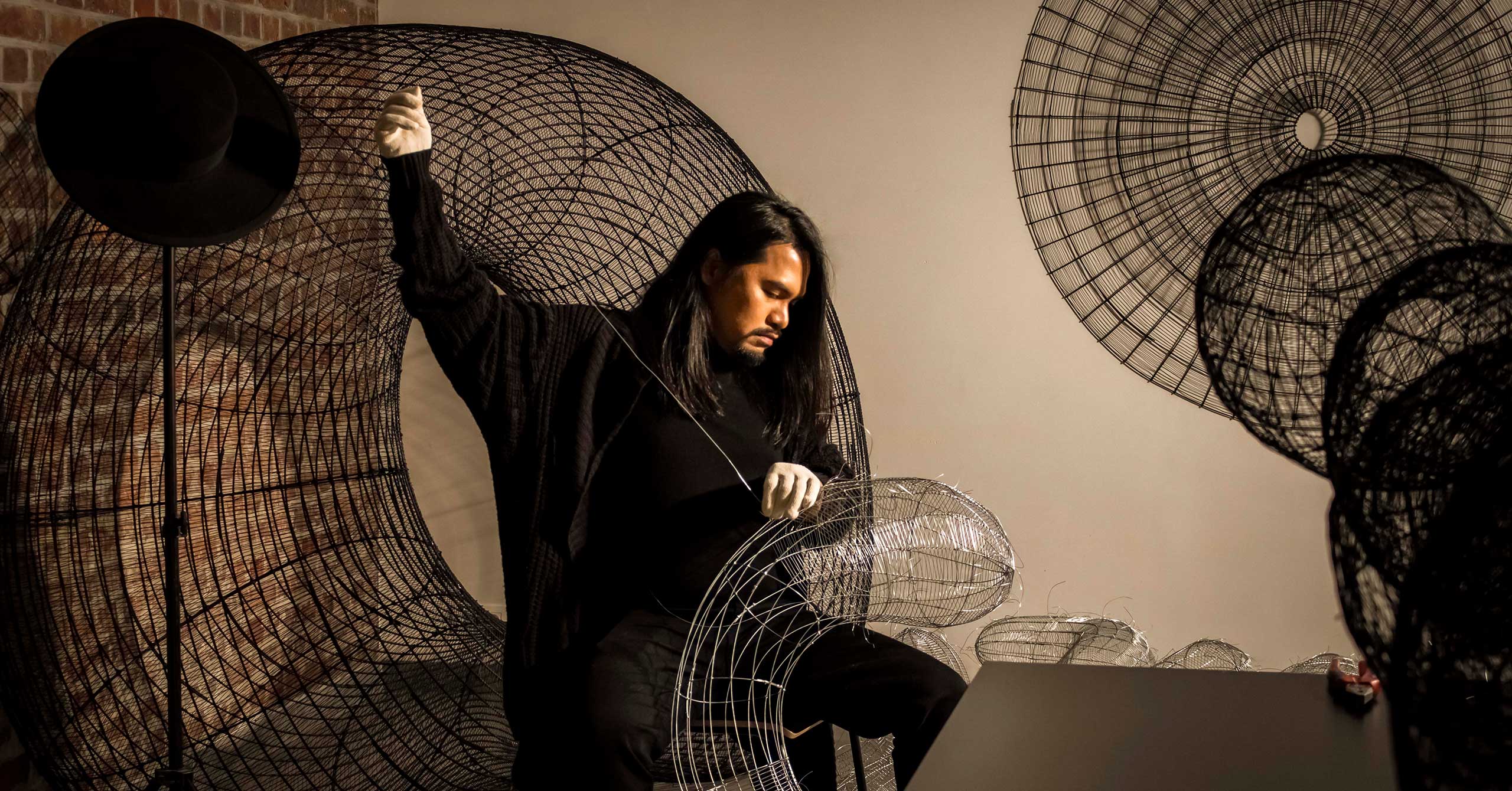Courtesy of Racso Jugarap
Wire artist Racso Jugarap represents the Philippines for the Loewe Craft Prize 2024. Courtesy of Racso Jugarap
In the early 2000s, Racso Jugarap was a young boy creating trinkets made out of discarded pieces of wire in his father’s jewelry shop. In 2024, he became the first Filipino finalist to qualify for the prestigious Loewe Foundation Craft Prize with his sculptural wire series, “Echinoid.”
The precious jewels, gold, and silver that adorned Racso Jugarap’s father’s jewelry shop were off limits. Consequently, young Racso was left to tinker with leftover wire scraps and pliers scattered around the workshop with which he fashioned trinkets and gifts to give to his friends.
“I didn’t even ask for money from [my friends], I just gave the gifts away for free— and they loved them.” Jugarap says. “I guess, because of that, they’ve always known me as the creative kid.”

Jugarap’s career as a wire artist might have started there— but it wasn’t his original plan. When he was seventeen, he moved to Germany and then to Belgium to be a chef, rebelling against his father’s wishes to follow in his footsteps as a jewelry maker. However, as the days blurred into each other at his daily job, his affinity for a creative outlet led him to look for a hobby. “I went to a hardware store to buy some gardening tools, because I wanted to try gardening as a break from my culinary work.” Jugarap says. “But out of the corner of my eye, I saw the wire, and I went to pick it up instead.”
Serendipitously, his search for a random hobby led him back to his childhood pastime, and soon he found himself creating intricate wire sculptures. Despite initially only crafting them for himself, as he continued creating, his work caught the attention of clients and buyers from around the world including celebrities like Abel Tesfaye, the musician more commonly known as “The Weeknd.” Venturing into other creative fields, Jugarap’s wire art has also been featured in the realm of fashion through his collaborations with fashion designers and worn by performers at events such as Belgium’s Tomorrowland Festival.
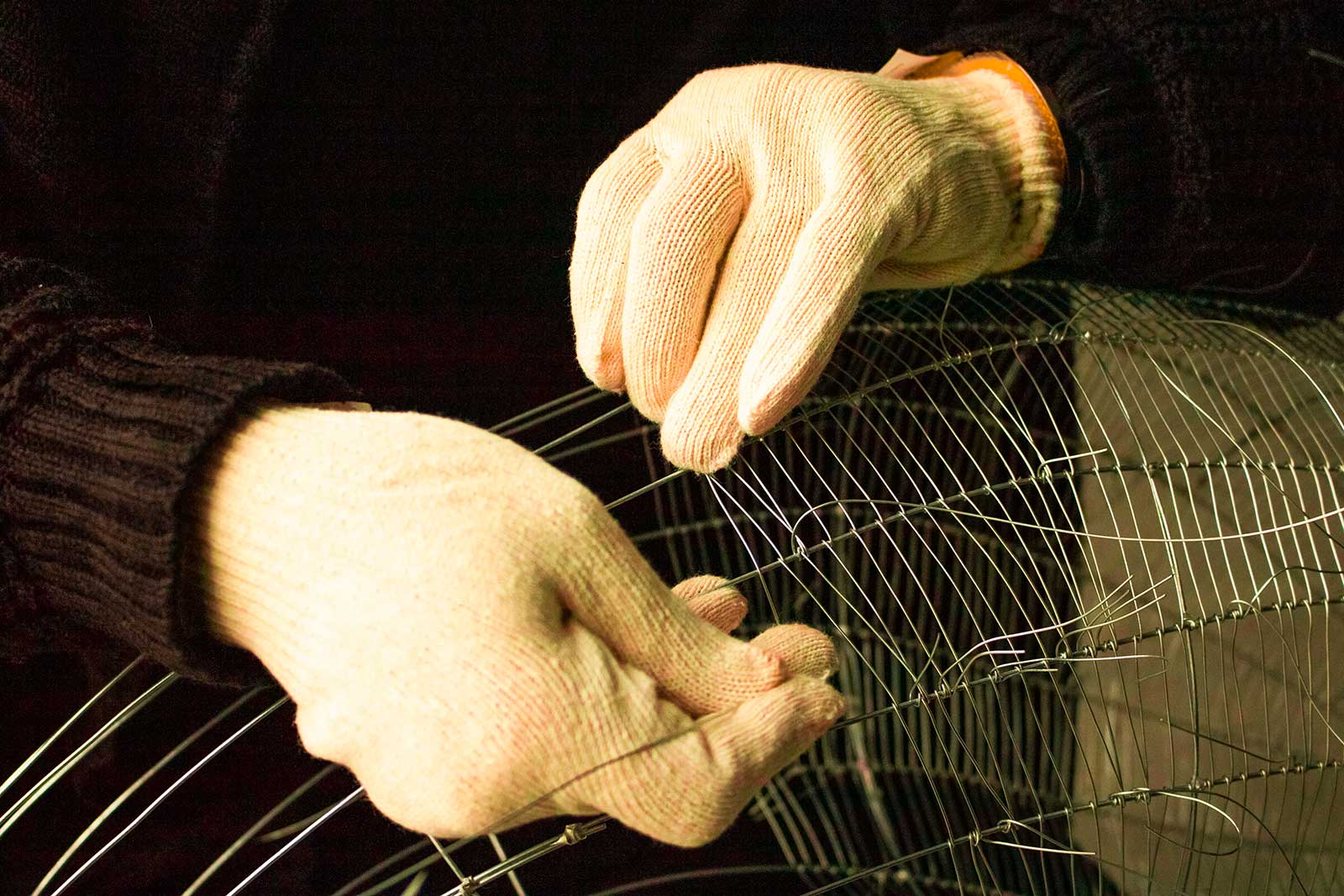
Jugarap says that some of these wire accessories were pieces that didn’t work the way he envisioned. “There are some wire pieces that I really hated and I planned to discard because they were taking up a lot of space. My manager convinced me to keep them. A week later, I got a call saying clients wanted the pieces I was planning to throw away.” Jugarap says.
Reminiscing about the trajectory of his career, Jugarap muses that it always goes back to his roots: as a child playing with scrap pieces and discarded wire. “I learned that I should keep my work, even if I don’t have a personal connection with it or if I initially don’t believe in it. I just keep them in a box or a basement somewhere, and later on I’d be able to create a new series using those materials. It’s part of the bigger story that none of these would be possible without all those scrap pieces.”
During the pandemic, the solitude crept up to Jugarap as creative inspiration. The artist spent most of his time at home recalling his past, which supplemented the essence of Filipino heritage in his new series, including “Echinoid,” the piece that made him a finalist for the Loewe Foundation Craft Prize 2024— an annual international competition that aims to reflect the importance of craftsmanship to today’s culture.
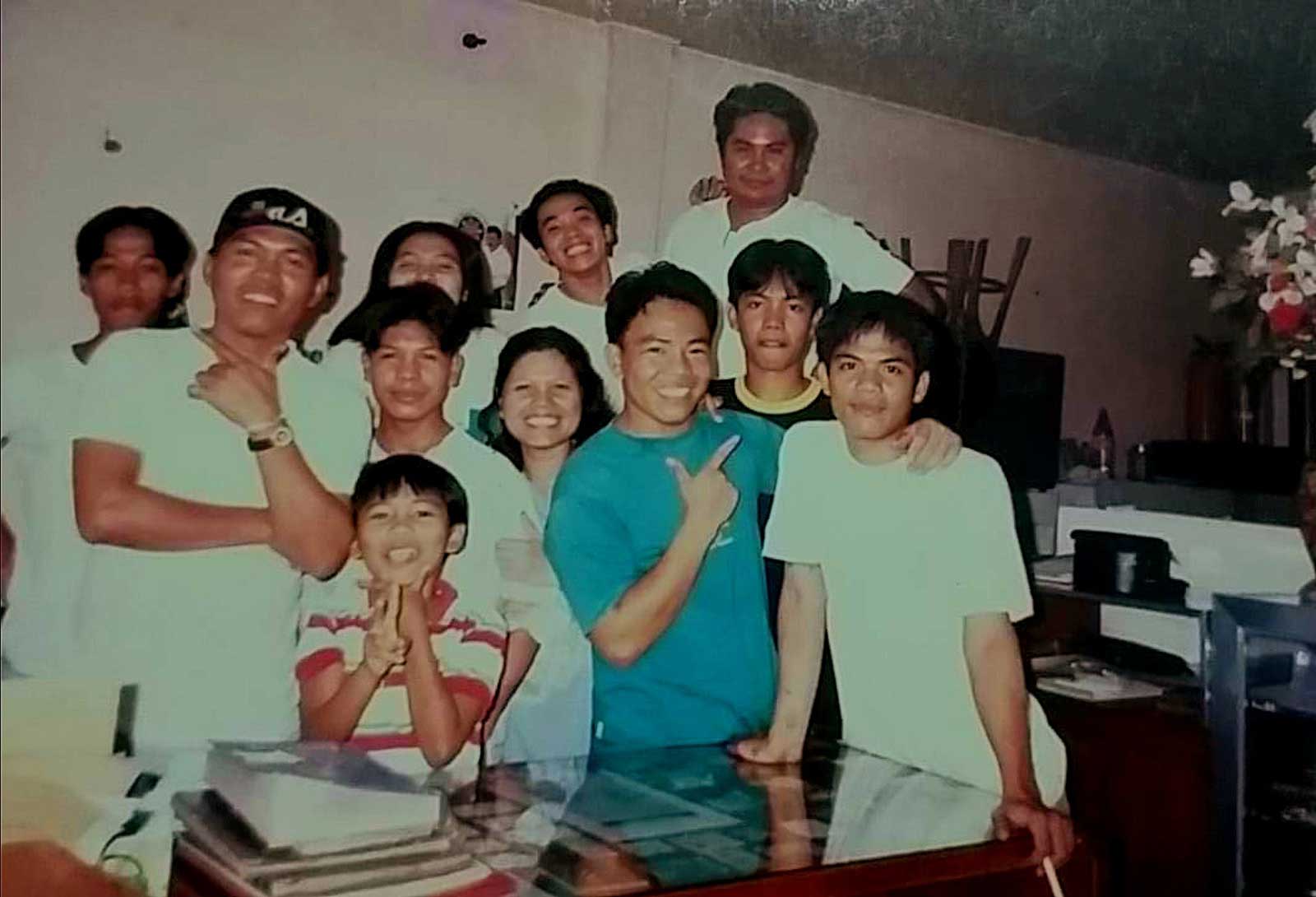
Jugarap spent most of his youth in General Santos City, along the Southern shores of Mindanao, a coastal area with a booming fishing and marine industry. “Echinoid” refers to the sea urchin, or tuyom in the Visayan dialect: a spiny marine animal that is also served as a delicacy in some parts of the Philippines as suwakil. Jugarap recalls how his uncle used to take him catching sea urchins on a beach ten minutes away from his home, and how the memory eventually influenced his art piece.
“When sea urchins are scattered on the beach, they form very beautiful patterns that feel mathematically positioned,” Jugarap says. “When the spikes get taken out, there are all these intricate patterns left behind on the shell that reminds you where the spikes were.”
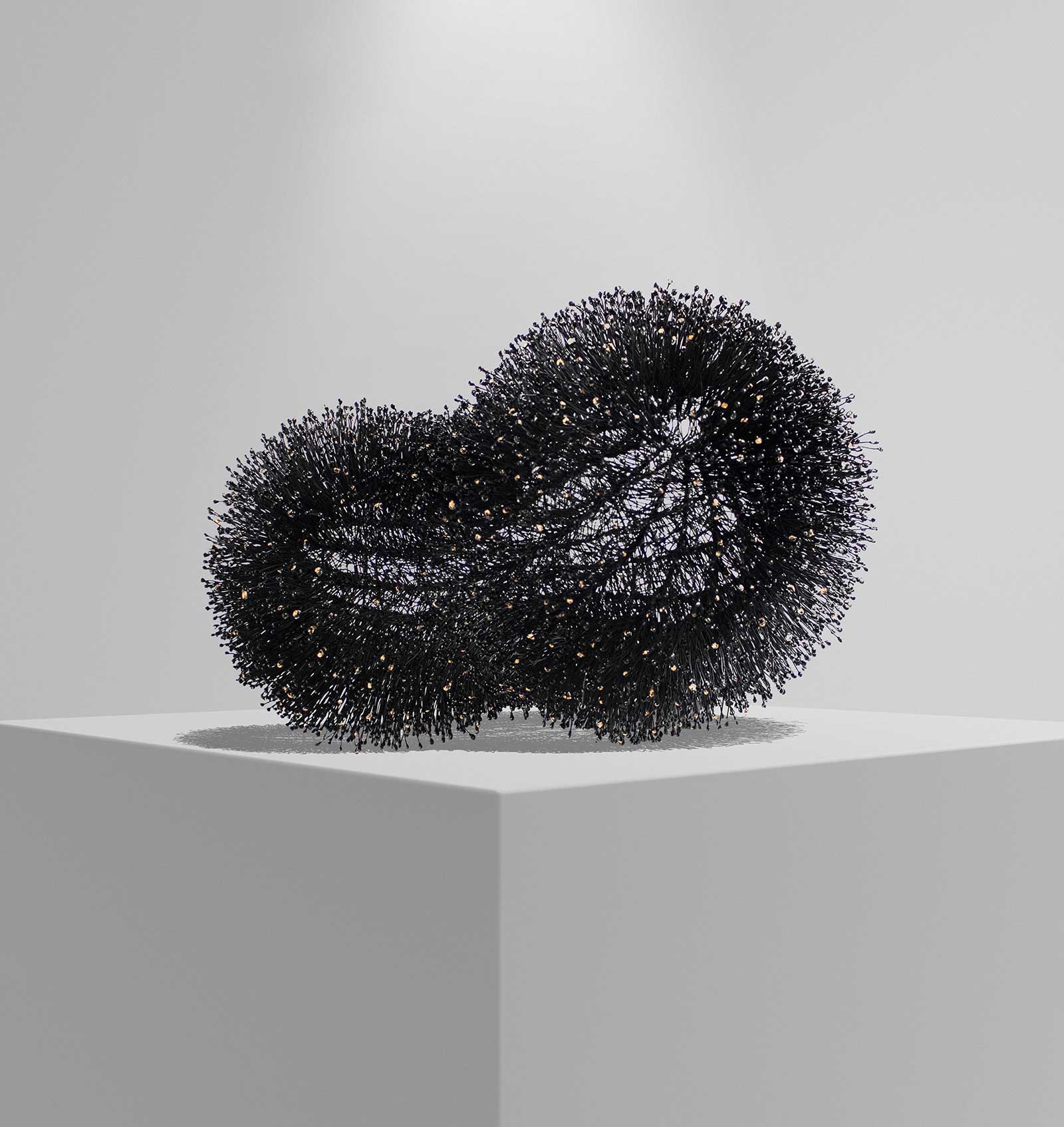
Jugarap conceptualized the “Echinoid” series for months, finding the right technique to mimic the sea urchin’s build and appearance through extremely meticulous wire manipulation. However, as the inspiration was very personal, Jugarap’s process in creating the piece was very intuitive and meditative. “If I’m doing something that motivates me, it also relaxes me. I can stay in the same position and work for hours.” Jugarap says. “Sometimes, my original plans don’t work out, but I had to find another way eventually. I realized I’m going to make mistakes, but as long as it made me happy creating it, that’s what’s important.”
Bliss despite initial setbacks seems to be a running theme in Jugarap’s career, as his previous bid for the Loewe Foundation Craft Prize was initially a bust. Jugarap previously applied for the 2023 edition of the competition with a different piece, but failed to qualify as one of the finalists. However, the disappointment of not qualifying for the previous year did not make his ambition wane— instead, Jugarap used the time and resources at his disposal to create the piece that would make him stand out amongst 3,900 other applicants across over 100 countries.
“After I didn’t get selected [for 2023], I already started planning for the next year. I did my research and thought about what inspired me.” Jugarap says. “I wanted to create something [the jury] haven’t seen yet— and my thoughts went back to my childhood.” Soon after, Jugarap was announced as one of the 30 finalists for the 2024 Loewe Foundation Craft Prize, where he would be the first and only representative from the Philippines.
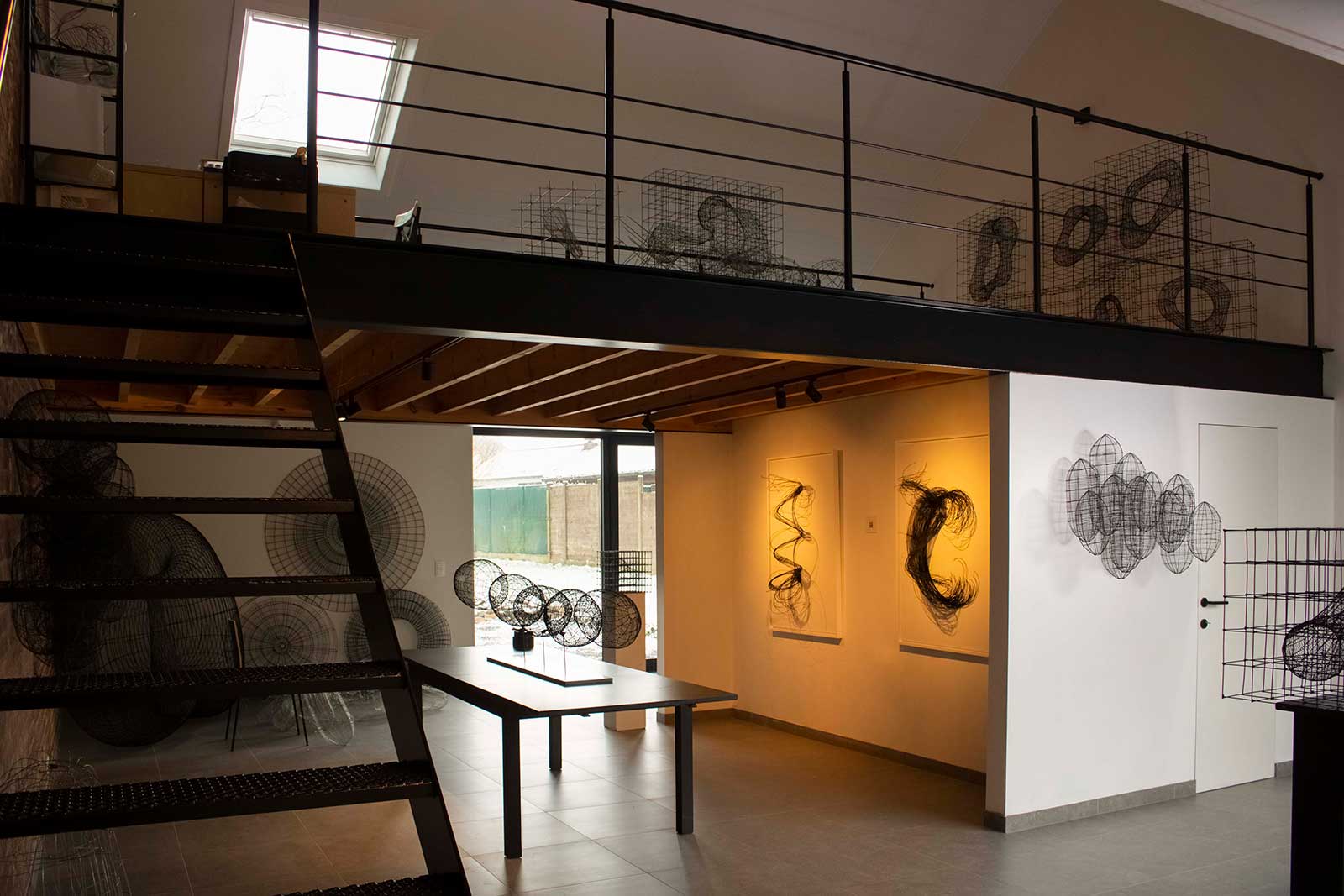
Just like how he brings his visions into existence by creating intricate wire masterpieces, Jugarap never lost hope in becoming one of the finalists for the competition. “I saw it in my mind over and over again for months. Every time I meditate, I visualize that I was going to be one of the finalists.” Jugarap says. “Belief can really move mountains.”
As Jugarap prepares to represent the Philippines in the prestigious competition, he guarantees to wear his culture up on his sleeve. For the announcement of winners in the Spring of 2024 in Paris, Jugarap anticipates wearing a contemporary barong by his friend and fashion designer Jaggy Glarino. “The reason why we really clicked with each other is that we both take inspiration from our childhood province for both of our creative avenues,” Jugarap says of the General Santos-born designer. “He’s a really talented designer and we are from the same hometown. I love his work and we both understand the struggle of creating something from scratch and turning it into something that connected to us personally.”
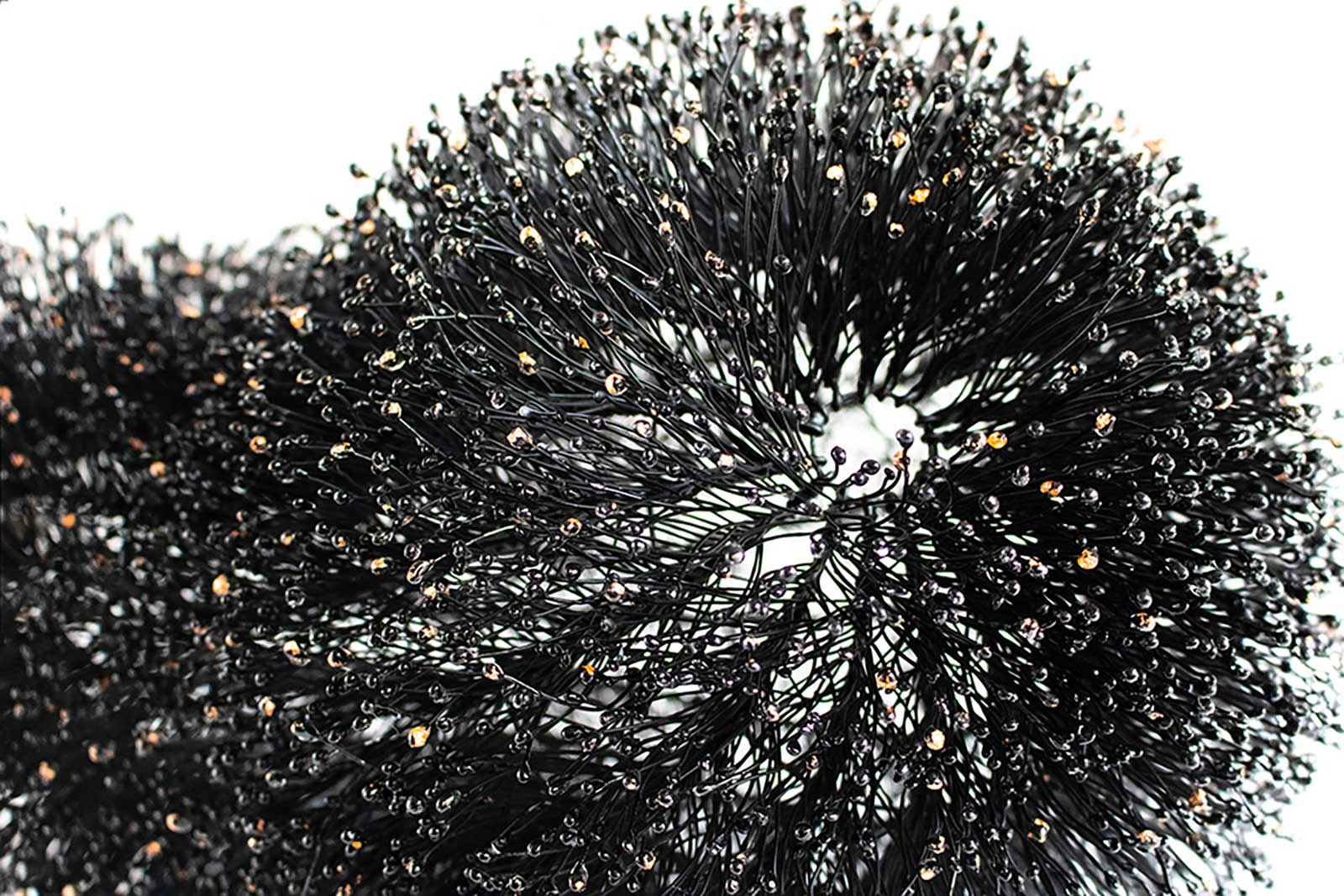
Teasing his outfit for the event, Jugarap says that the material is deeply connected to both his and Glarino’s memories of the simple life in the province. “The material [used in the barong] is usually found in the homes of our lolos and lolas, and [Glarino] turned it into something that’s very contemporary and visually pleasing to me.” Jugarap says. “I was able to hold it in my hands and I knew that each of those threads tell a story.”
Throughout his journey to the coveted Loewe Craft Prize 2024, Jugarap’s reflections on his past propels his pursuit of success in the future. Through his dedication and passion, he transformed a childhood hobby into a successful career as an artist. However, in representing the Philippines on the global stage with “Echinoid,” Jugarap does not only showcase his individual prowess as a wire artist; instead, he invites an international audience to see beyond our culture’s surface and to discover wonders in an ocean of talent rarely explored.
